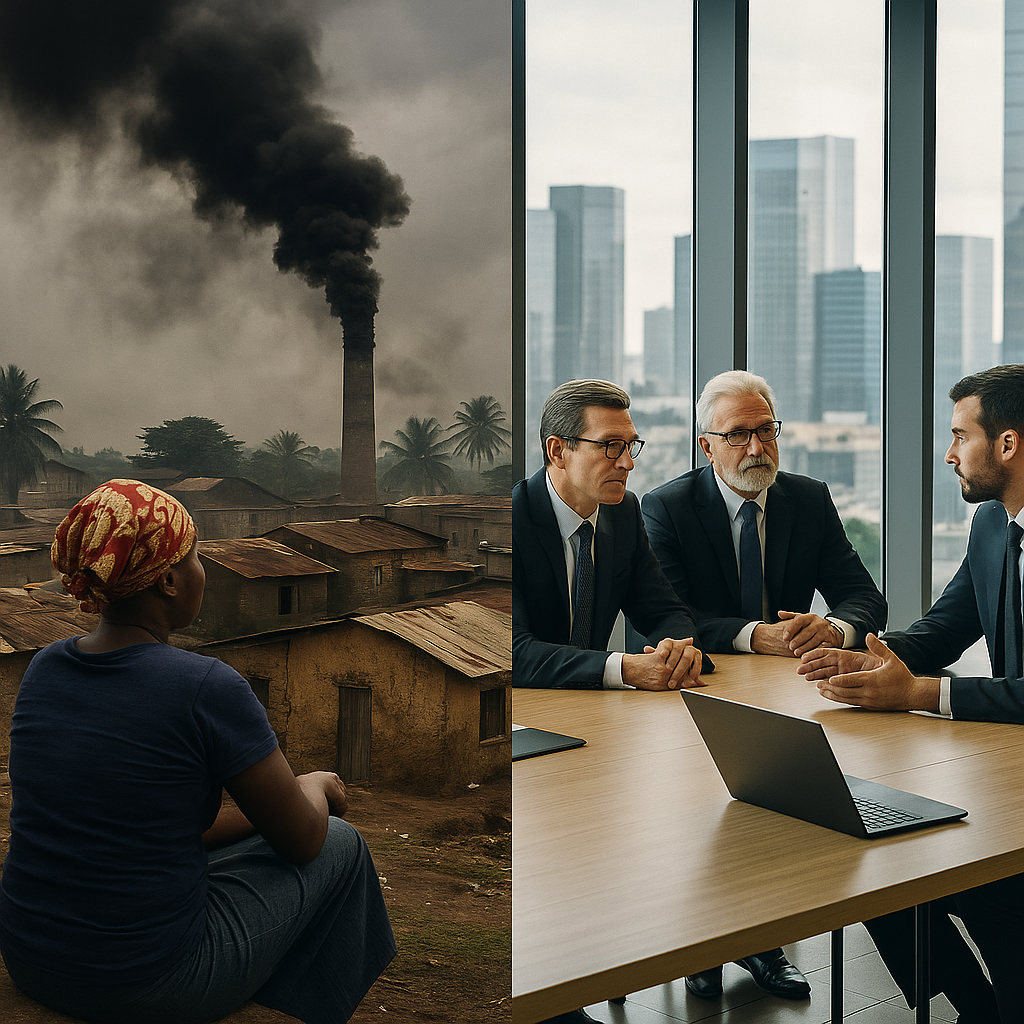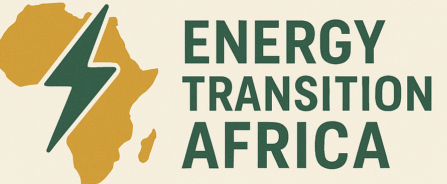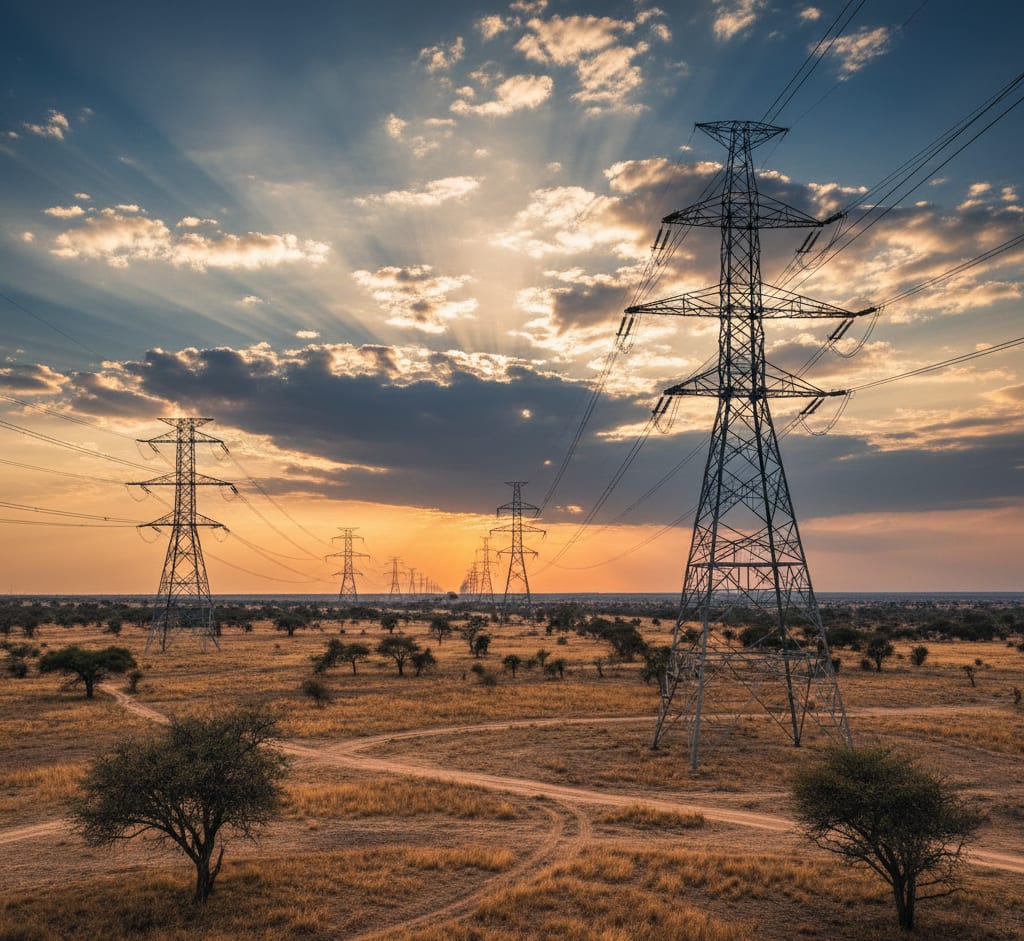Who Truly Benefits from Just Transitions in Africa? The Rising Tide of Elite Extraction

In recent years, Africa has been hailed as a leader in designing just transitions, energy shifts that protect both the planet and people. Among the most ambitious is the Just Energy Transition Partnership (JETP) in South Africa, promising $8.5 billion to pivot away from coal, while safeguarding workers and communities.
Yet beneath the headlines, a troubling pattern emerges. Over 65 percent of the grant funding has flowed to global consultancies like BCG, Deloitte, and PwC. That leaves local firms and community groups with less than a quarter of the resources.
This raises a sharp question: Whose transition is this?
A Global Trend
South Africa is not alone. Across Africa, climate finance often travels north to consultancies, engineering firms, and project developers, bypassing local capacity. Consider:
- Nigeria’s Energy Fund, while reforms include green energy clauses, dominant contracts go to European consultancies.
- Morocco’s Solar Expansion—local firms report little engagement as mega-projects favour international bidders.
- Kenya’s Just Transition Pilot—even when designed to benefit coal-dependent communities, funding has largely flowed to global advisors.
In Tanzania, plans to shift Maasai households to solar stoves and boreholes are being handcrafted by foreign NGOs, while local voices struggle to get a foot in the door.
When Local Communities Miss Out
In Mpumalanga, South African towns once thriving on coal mines now edge into decline. Workers struggle with lost wages, health problems, and no clear path ahead. In these very communities, transitional investments are thin on the ground.
In the Niger Delta, proposals to clean gas flares are steered by overseas engineering teams. Yet local youth and oil workers remain excluded from contracts or hiring schemes.
In Zambia’s copper belt, now shifting towards green minerals, smelters and hydrogen plants are being designed by foreign developers. Local welders and engineers wait for skills training that never arrives.
The result is a familiar narrative: an elite-driven transition that lifts global firms, while leaving frontline communities with pollution, instability, and broken promises.
The Risks of Elite Control
When global consultancies steer the transition, they set the narrative. They dictate project timelines, targets, and definitions of progress. But those agendas often reflect external priorities:
- Investment returns
- Export potential
- International reputational gains
Local communities, by contrast, need clean air, stable jobs, and affordable energy access. Without direct investment in those areas, transitions risk deepening inequality.
Spotlight on South Africa
South Africa’s JETP, originally marketed as a world-class model, risks becoming a case study for global extraction.
With $1.5 billion in grants, only about $350 million has been channelled to South African entities. The rest flows through multilateral banks and international consultancies managing the whole programme. Meanwhile, coal workers await reskilling centres, and coal towns await green industries.
That is not a transition; it is a transplant of foreign expertise at the expense of local resilience.
Lessons from Other Countries
This pattern repeats across the continent:
- Morocco tapped global firms for solar farm design, sidelining Moroccan engineering firms. National contractors report that project ownership never made it past zoning discussions.
- Kenya’s pilot just transition for coal-adjacent towns favoured diaspora consultancies over local youth organisations. As a result, cash flows and capacity-building remain uneven.
- Nigeria’s gas flow reduction plan, although promising on paper, was crafted by international climate advisors. Local community panels were not consulted until after key contracts had been awarded.
These cases illustrate a deeper issue: carbon justice without social justice.
Reclaiming the Narrative
To ensure just transitions serve communities, African governments must take three steps:
- Localise procurement: Reserve at least 50 percent of funding for African-led firms, NGOs, and cooperatives.
- Mandate community governance: Transition projects must include local councils or community boards from the start.
- Publish all data: Contracts, budgets, and progress reports should be accessible in public formats and African languages.
Signs of Hope
Some projects already point in the right direction:
- South Africa’s Lilitha Institute has received dedicated financing to train ex-coal workers in solar tech, even as global consultancies manage larger JETP funds.
- In Zambia, two village energy co-ops now run solar kiosks with micro-grids, funded by local investors and aided by small grants.
- Nigeria’s Civil Society Coalition for Climate has successfully influenced grant allocations in several federal projects.
These initiatives show that when communities lead, transitions endure.
A Continental Movement
Resource-rich countries like Ghana and Sierra Leone are drafting “citizens' funds” similar to Alaska’s oil revenue model. Revenues from gold, lithium, and cobalt are being ring-fenced for public services, job training, and energy access.
Under the African Continental Free Trade Area (AfCFTA), a pan-African energy transition fund is under discussion. It would prioritise grants for community-led initiatives before corporate or consulting intermediaries.
The Path to True Justice
Africa’s transition cannot be built on copy-paste templates. It must reflect local realities. That means:
- Decarbonisation with dignity: phasing out coal and gas while keeping money, jobs, and dignity in coal towns.
- Green growth from the ground up: from solar kiosks in rural markets to lithium batteries made by community co-ops.
- Climate justice, not just climate action.
Final Word
Africa stands at a crossroads. It can lead to a transition rooted in fairness. Or it can repeat patterns of extraction and passivity.
A just transition in Africa cannot be a file on a donor’s shelf. It must be lived by communities who face the sun and the smoke every day.
🌍 Learn more about our vision for people-led energy futures in “Africa’s Energy Transition Must Centre People, Not Just Technology”.



